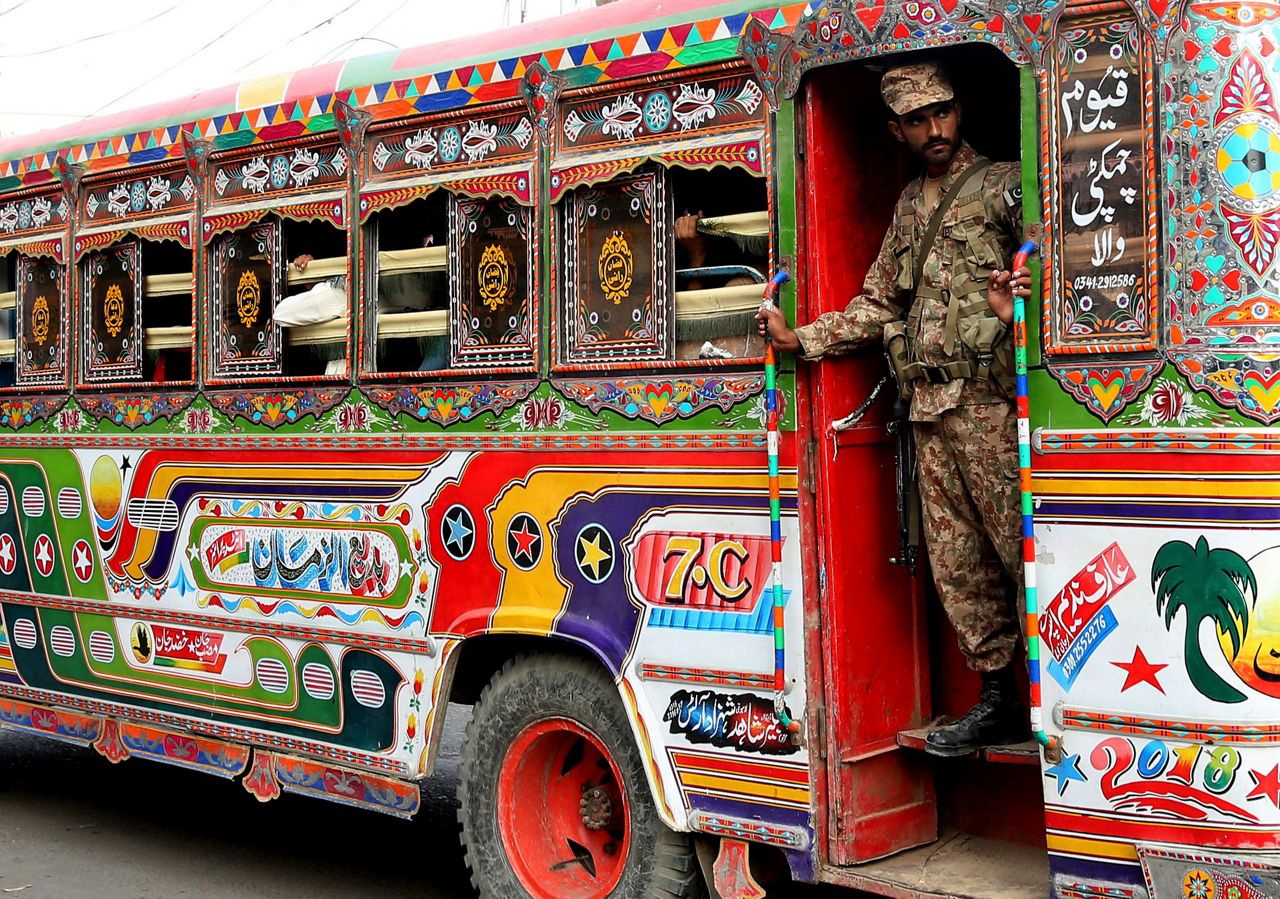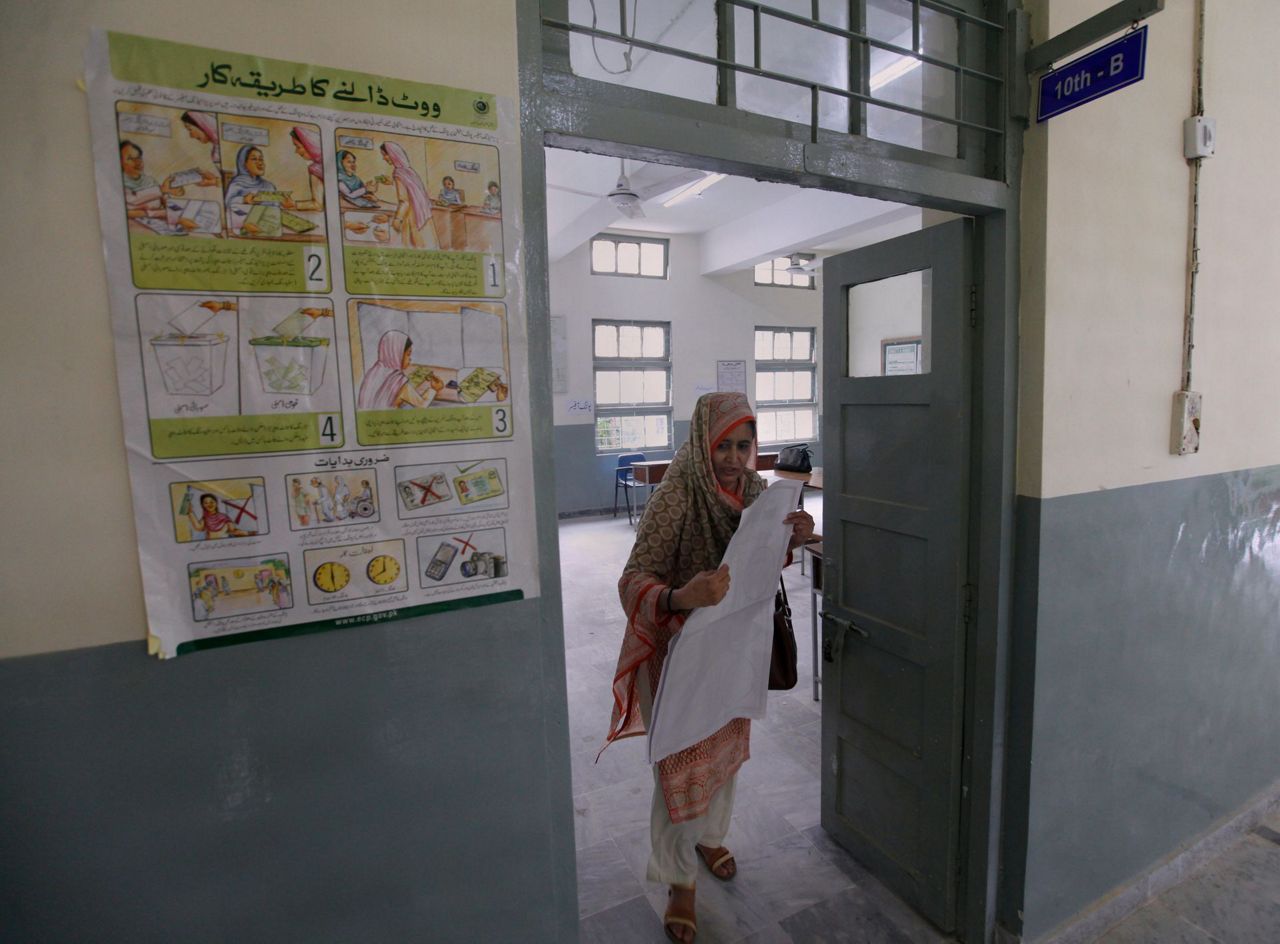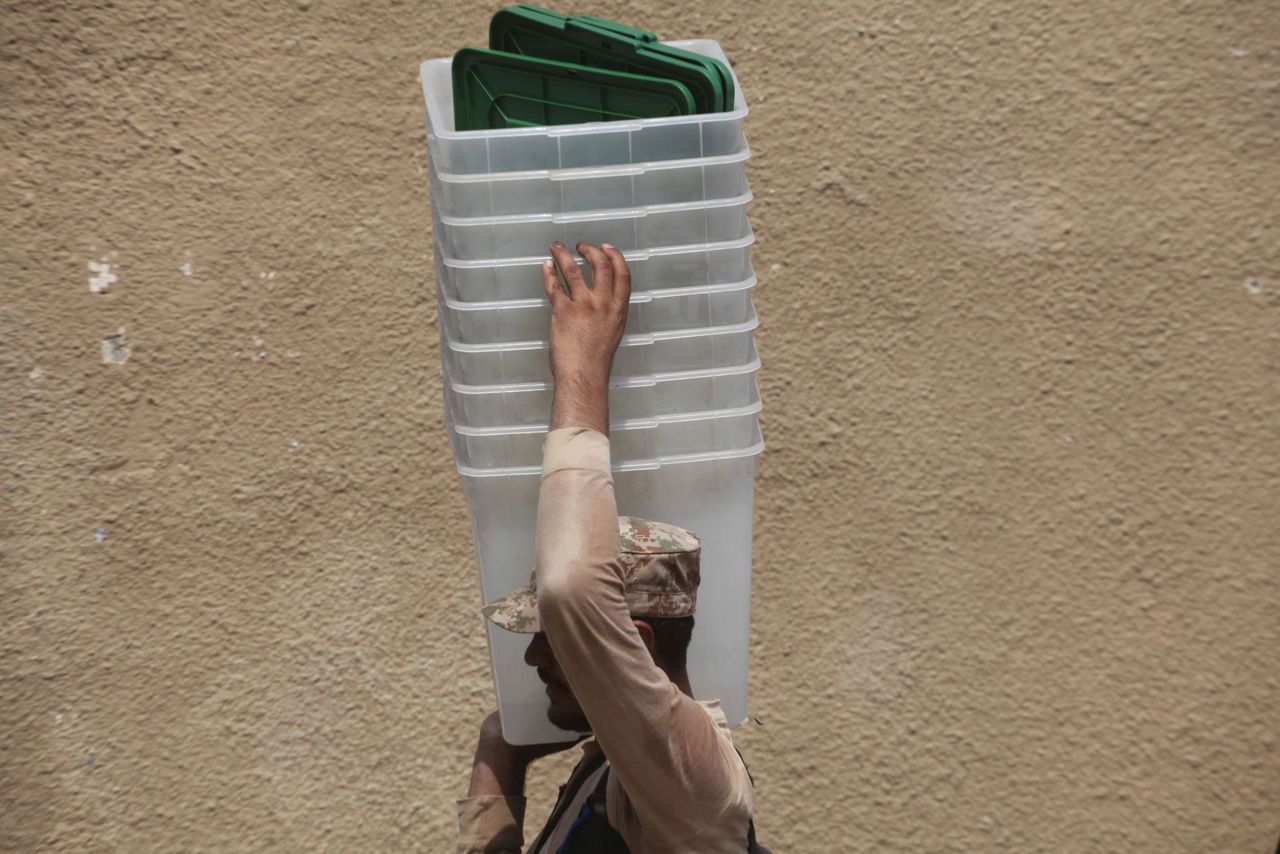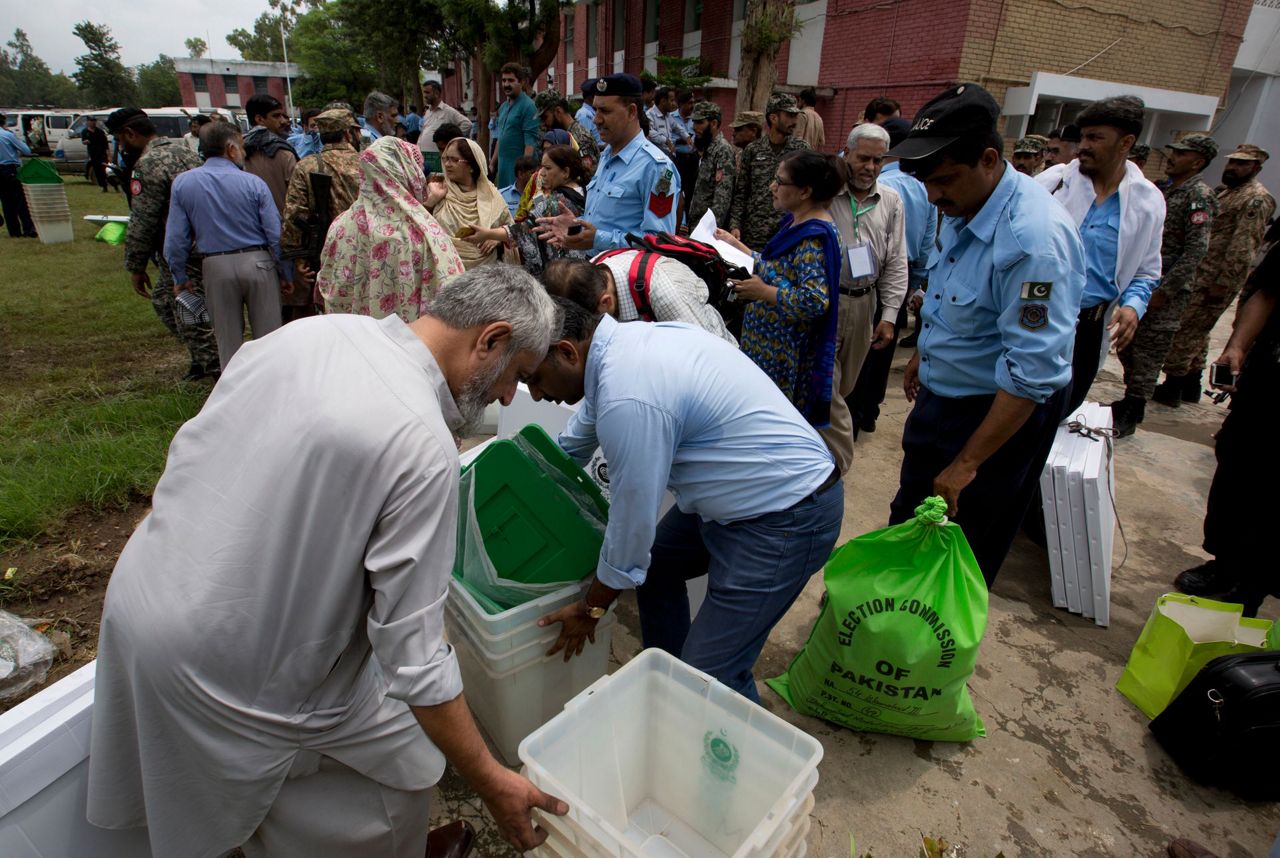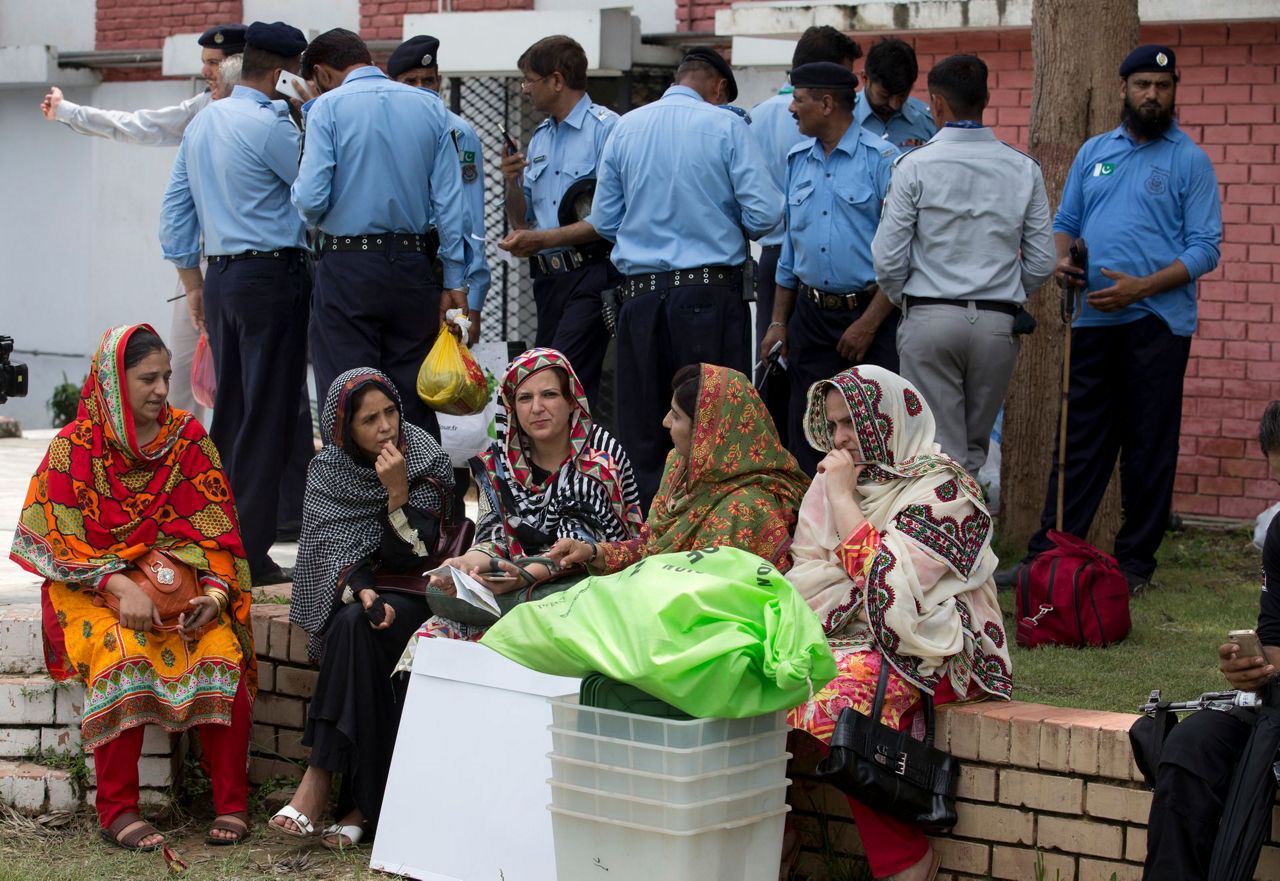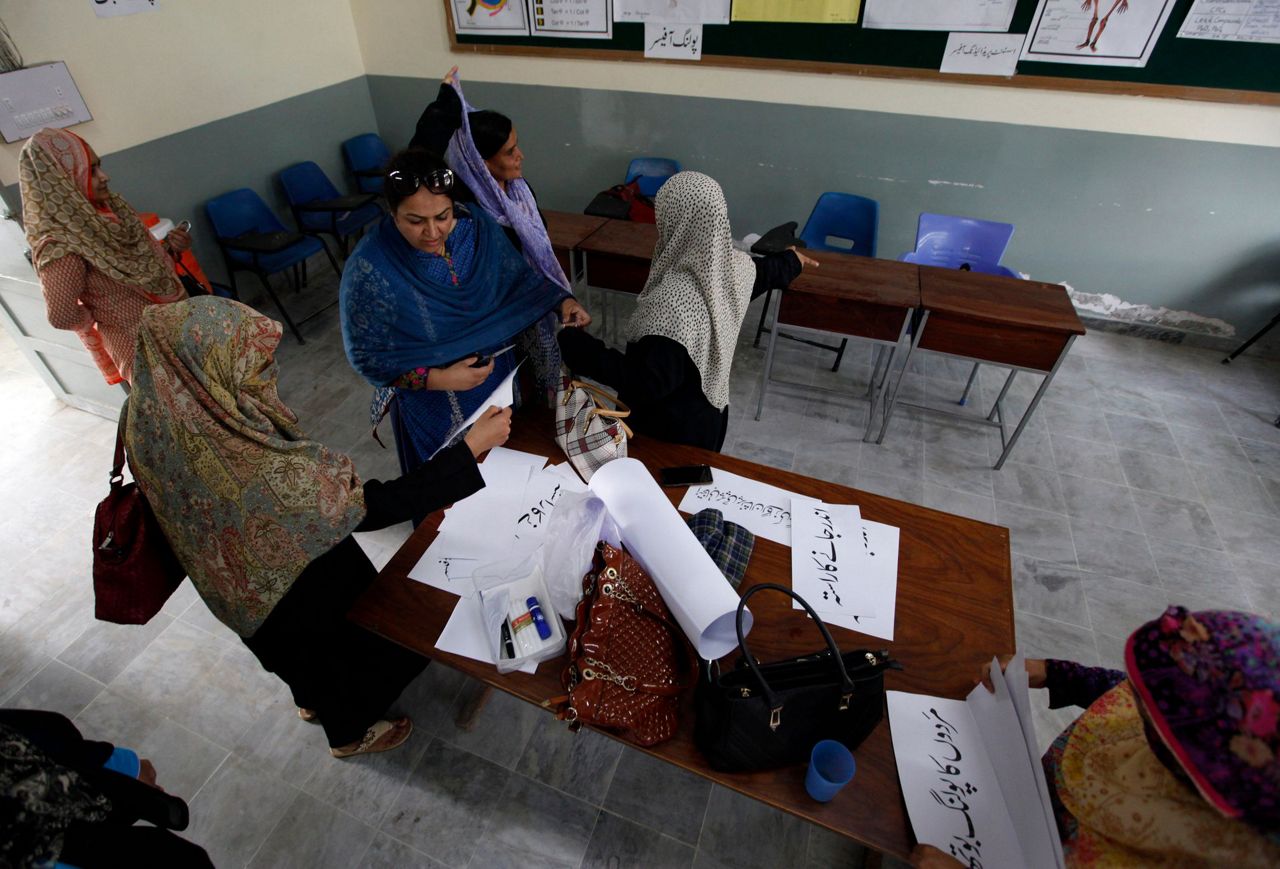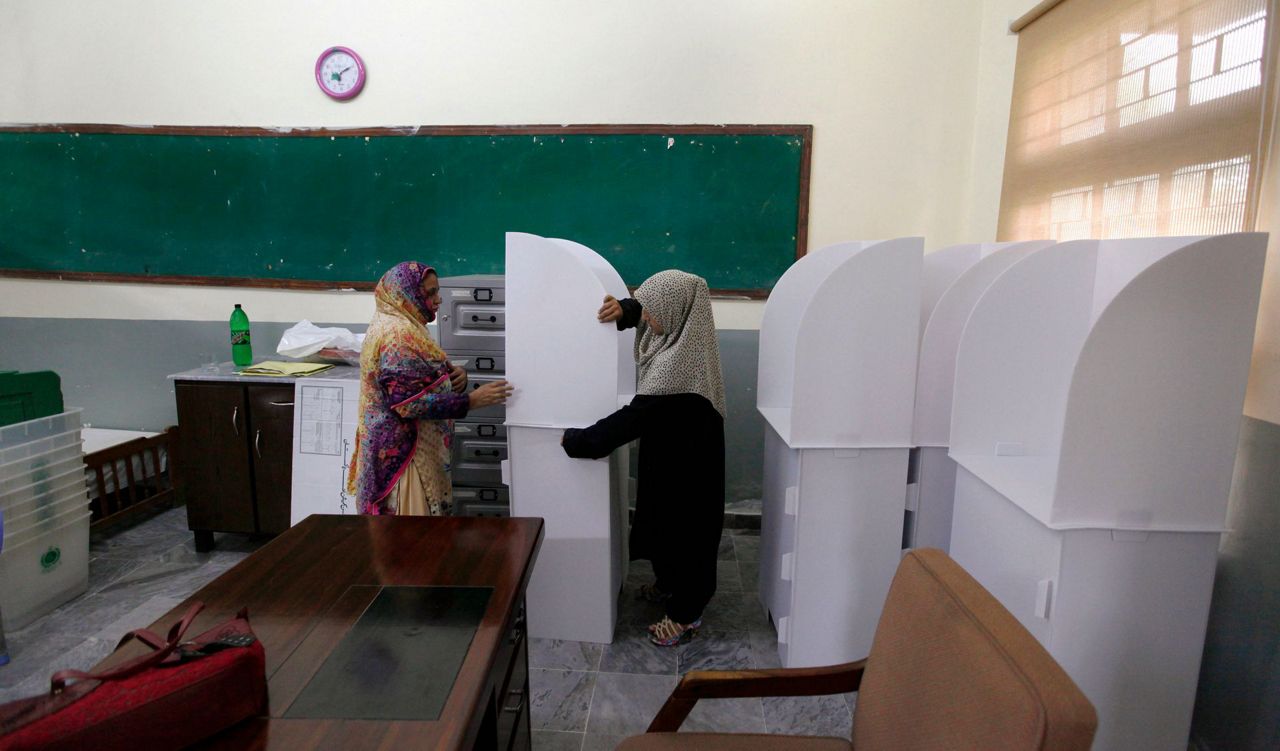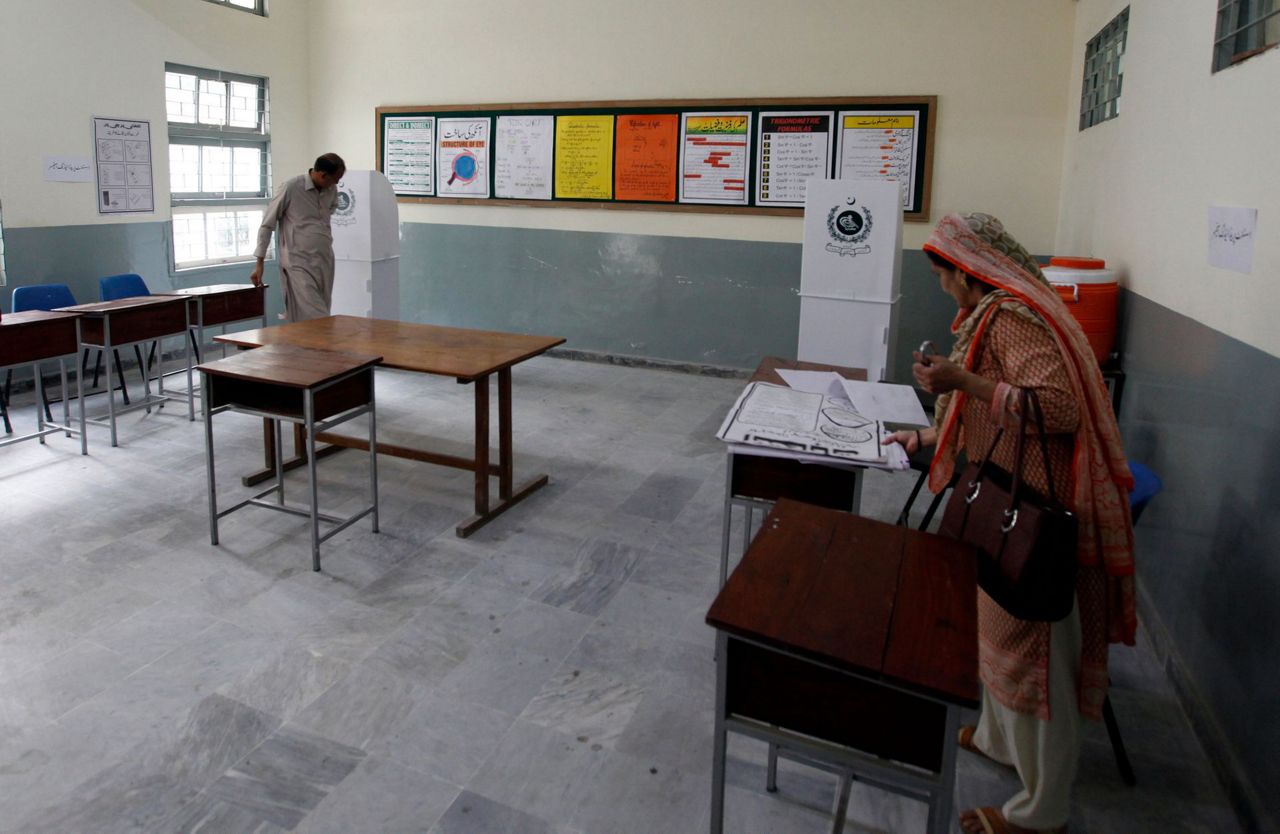ISLAMABAD (AP) — Pakistanis go to the polls Wednesday to elect a third straight civilian government, with more than 11,000 candidates vying for 270 seats in the parliament and 570 seats in four provincial assemblies.
Under Pakistani law, separate seats are reserved for women and non-Muslim minorities, which comprise about 4 percent of the country's more than 200 million residents.
The election comes amid controversy surrounding former Prime Minister Nawaz Sharif, who recently returned to the country from London to face corruption charges even as he has sought to return his party, the Pakistan Muslim League, to power. Meanwhile, popular former cricket player Imran Khan hopes to become the next premier.
Voting for two parliament seats and six seats in provincial assemblies has been postponed for a later date, due to attacks on candidates or disqualifications. One provincial seat in Sindh province was won unopposed.
Here is a look at contested seats in the National Assembly and four provincial assemblies and the number of candidates running:
NATIONAL ASSEMBLY
The National Assembly in the capital Islamabad is comprised of 342 seats, of which 270 open seats are being contested.
The remaining 70 seats are reserved for women and non-Muslims, with 60 for women and 10 for non-Muslims. Two seats will be decided later.
Punjab is the largest province and key to the formation of a new government with 139 assembly seats being sought by 1,584 candidates. For the 35 seats reserved for women from Punjab, 73 candidates are listed.
The party obtaining the majority of seats in Punjab will likely form the next government. The three major parties — Khan's Tehrik-e-Insaf, the former ruling Pakistan Muslim League and Bilawal Zardari's Pakistan People's Party — are focusing on Punjab. Khan, Zardari and PML-N chief Shahbaz Sharif are campaigning for multiple seats, which is allowed under Pakistani law.
In southern Sindh province, there are 61 National Assembly seats being contested by 824 candidates and 48 candidates are vying for the 14 seats designated for women.
For northwestern Khyber Pakhtunkhwa province, where there are 39 National Assembly seats, there are 721 candidates competing. There are eight reserved seats for women, with 35 candidates competing for them.
In southwestern Baluchistan province, 16 seats are up for grabs with 287 candidates running for them, and three seats for women, with 16 candidates.
The capital city, Islamabad, has three assembly seats and this year, 73 candidates are in the running.
There are 12 assembly seats being contested in the tribal belt along the Afghan border and 289 candidates are competing for those seats.
PROVINCIAL ASSEMBLIES
—Punjab Assembly: It has 371 seats, of which 295 are being contested by 3975 candidates. Vying for the 66 seats for women are 174 candidates and for the eight seats for non-Muslims, 32 candidates are lined up.
—Sindh Assembly: For the 168-seat body, 129 seats are being contested by 2,149 candidates. One uncontested seat has already been decided. For 29 seats for women, 91 candidates are listed and for nine reserved seats for non-Muslim minorities, 39 candidates are listed.
—Khyber Pakhtunkhwa Assembly: In the 124-seat assembly, 98 seats are being contested by 1,132 candidates. The election of one seat has been postponed due to the death of a candidate in a suicide attack in the provincial capital, Peshawar. For 22 women's seats, 79 candidates are lined up and for three minority seats, 20 candidates are in the wings.
— Baluchistan Assembly: There are 933 candidates in the running for 51 general seats. The contest for one seat has been postponed due to the death of a candidate and 148 supporters in the district of Mastung in a suicide bombing. The attacker blew himself up as provincial candidate Siraj Raisani held a rally in the Drin Garh area of Mastung.
For the 11 seats reserved for women, 42 candidates are in line. For three reserved seats for non-Muslims there are 22 candidates.
Copyright 2018 The Associated Press. All rights reserved. This material may not be published, broadcast, rewritten or redistributed.



